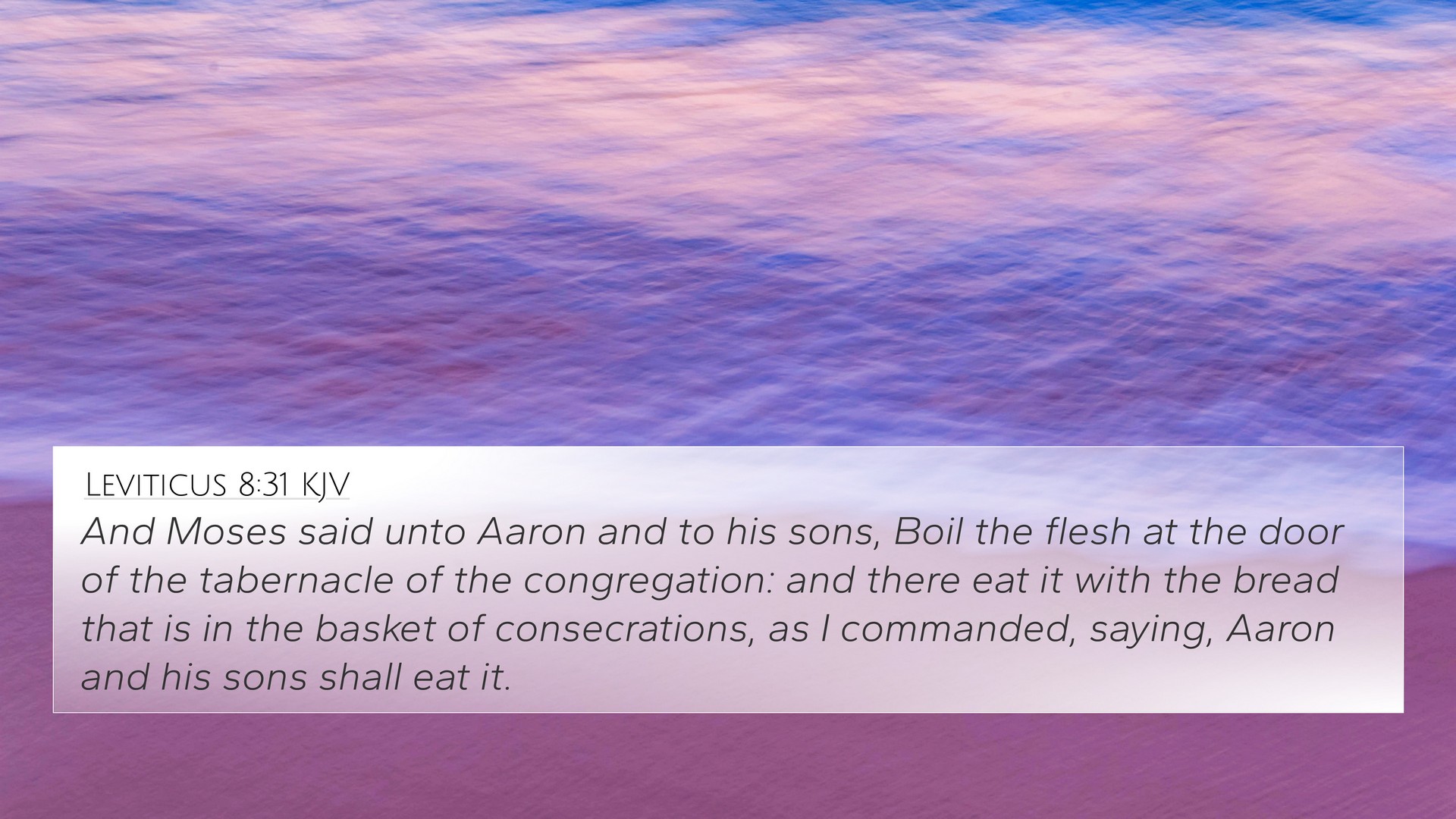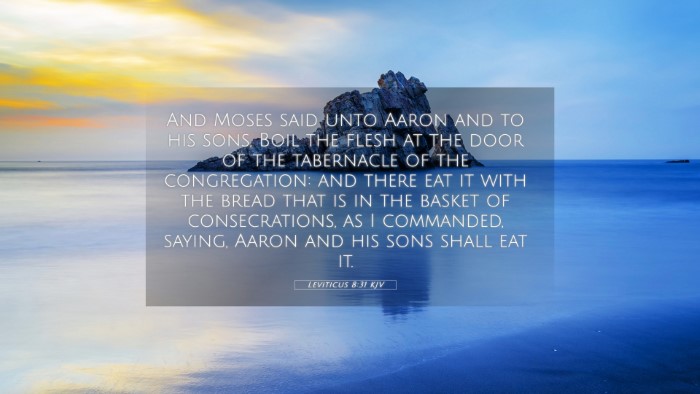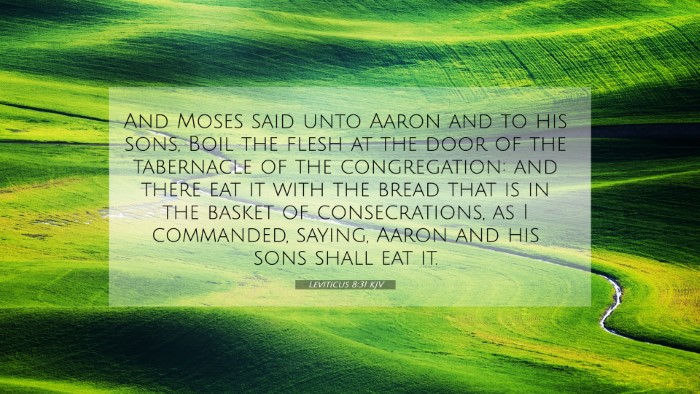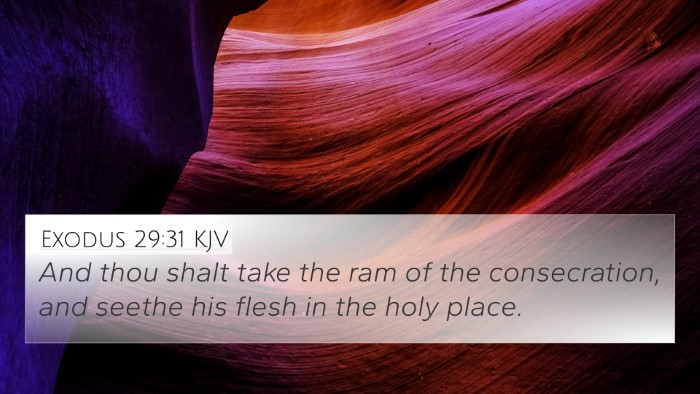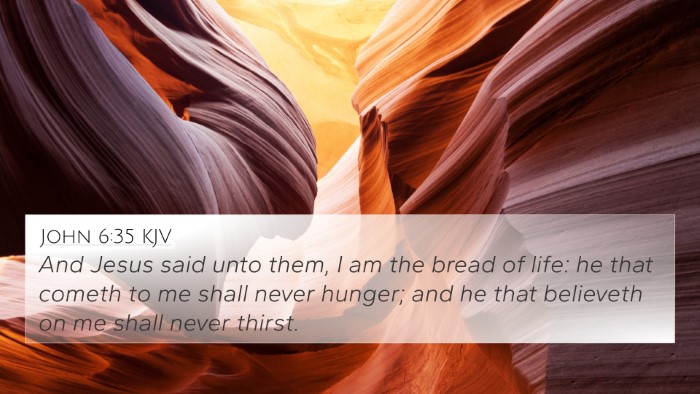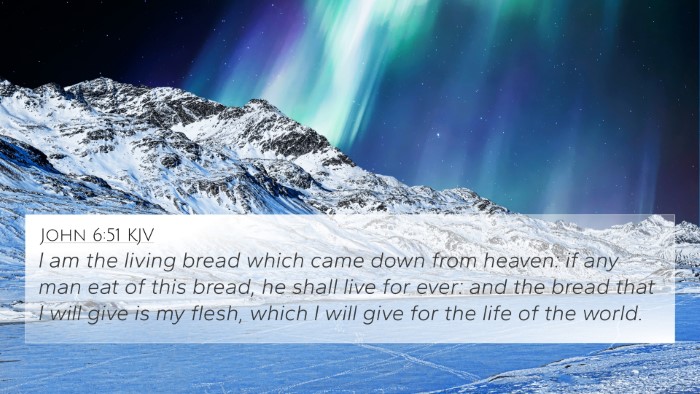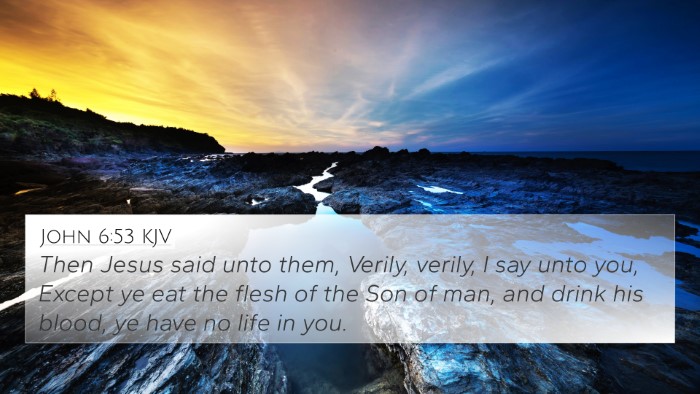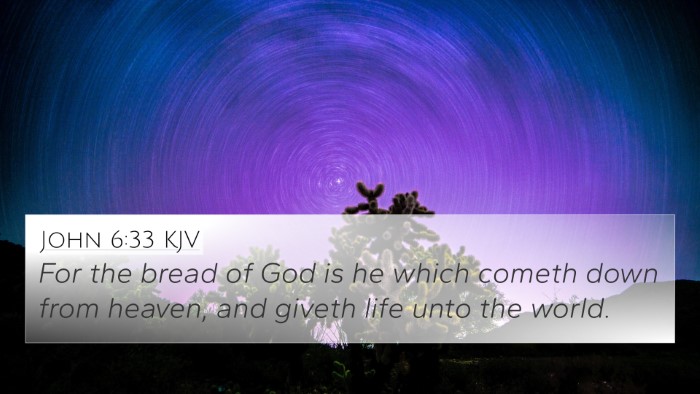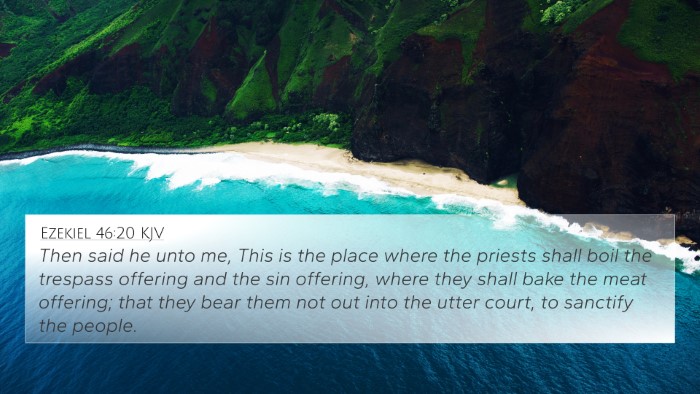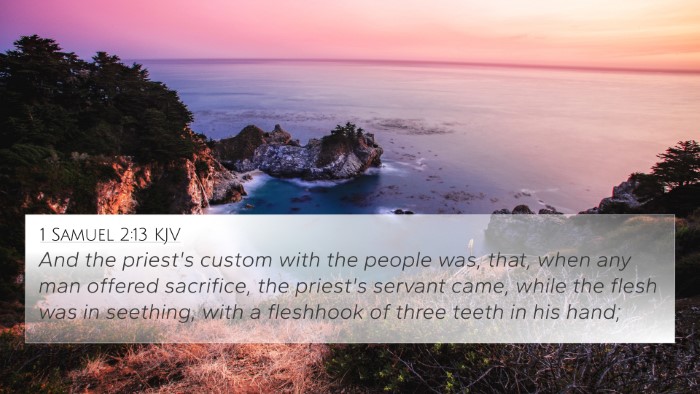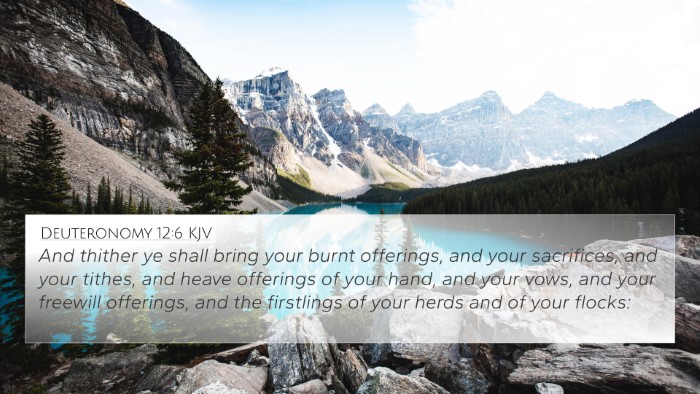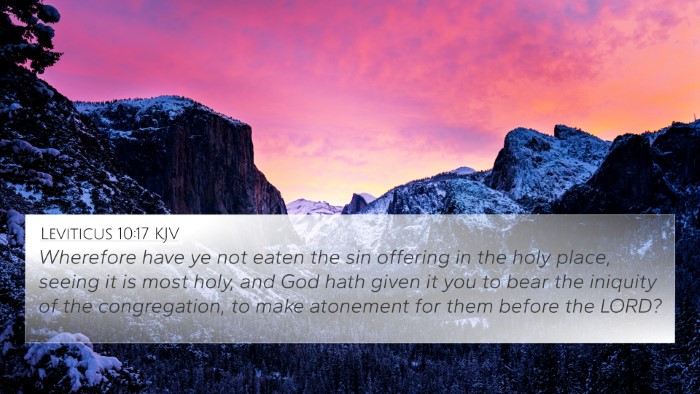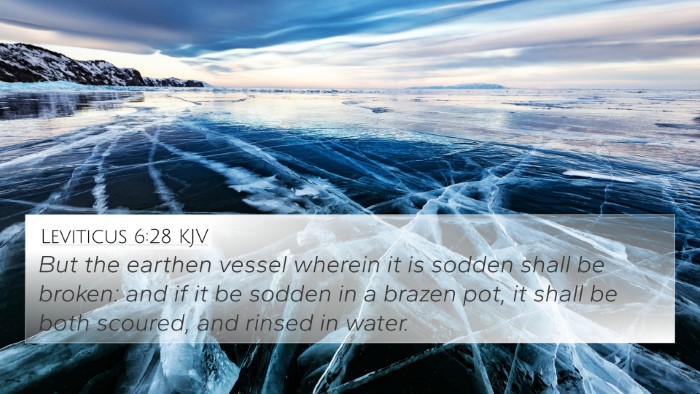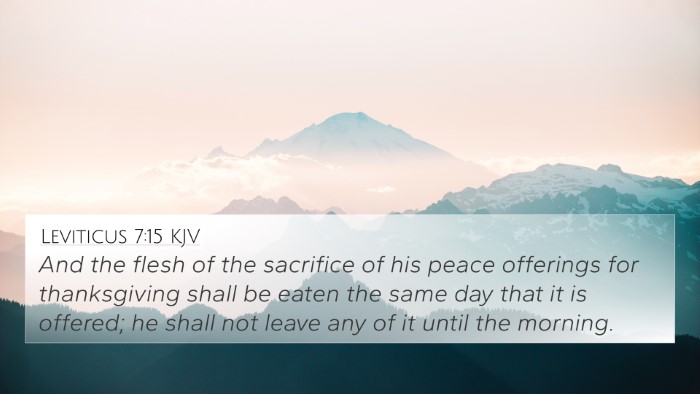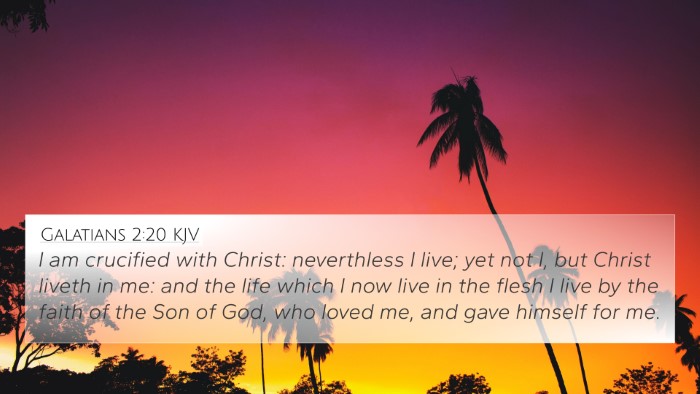Understanding Leviticus 8:31
Leviticus 8:31 states: "And Moses said to Aaron and his sons, 'Boil the flesh at the door of the tabernacle of the congregation: and there eat it with the bread that is in the basket of consecration, as I commanded, saying, Aaron and his sons shall eat it.'
This verse holds deep significance in the context of the ordinances given to the priests during their consecration. The instruction reflects the holiness required of Aaron and his sons as they take on their priestly roles.
Commentary Insights
-
Matthew Henry's Commentary:
Matthew Henry emphasizes the importance of obedience in carrying out God's commands. He notes that the priests were to partake in the offerings as a symbol of their relationship with God and their role in mediating for the people.
-
Albert Barnes' Notes on the Bible:
Albert Barnes highlights how the act of eating the offerings at the tabernacle signifies acceptance. He points out that the priests’ eating of the sacrifices illustrates their commitment to serve God and represent the people before Him.
-
Adam Clarke's Commentary:
Adam Clarke elaborates on the symbolic meaning of both the flesh and the bread. He indicates that this divine meal emphasizes the shared relationship between God and the priests, signifying sustenance and spiritual nourishment.
Thematic Connections
Leviticus 8:31 not only emphasizes the role of priests in the Old Testament but also provides substantial connections across the Bible. Below are key themes and parallel verses:
-
Priestly Order:
- Exodus 29:31-32 - Instructions for the consecration of the priests.
- Hebrews 5:1 - Discusses the role of the high priest, linking to New Testament themes.
-
Significance of Sacrifice:
- Leviticus 3:1 - The laws concerning peace offerings.
- Romans 12:1 - "Present your bodies a living sacrifice," connecting old and new covenants.
-
Holy Communion:
- 1 Corinthians 10:16 - The bread and cup symbolizing Christ’s body and blood.
- John 6:51 - Jesus as the Bread of Life, reflecting on shared meals in spiritual context.
Cross-References and Their Meanings
Several verses complement the understanding of Leviticus 8:31. These cross-references allow for deeper insights into the themes of priesthood, sacrifice, and spiritual nourishment:
- Leviticus 10:12-14 - Further instructions regarding offerings and the priestly functions.
- Psalm 110:4 - Proclamation of the eternal priesthood, connected to Christ.
- 1 Peter 2:9 - Describes believers as a royal priesthood, drawing parallels with OT priests.
- Matthew 26:26-28 - Institution of the Lord's Supper, reflecting the sharing of blessings.
Tools for Bible Cross-Referencing
To navigate these connections effectively, various tools and methods can be employed:
-
Bible Concordance: Use a concordance to find specific words or phrases that can lead to related scriptures.
-
Cross-Reference Bible Study: Engage in thematic studies to understand how various scriptures interact with one another.
-
Bible Reference Resources: Utilize comprehensive reference materials that consolidate critical cultural, historical, and contextual insights.
Conclusion
Leviticus 8:31 serves as a powerful verse illustrating the sacred duties of the priesthood and their profound symbolism in both the Old and New Testaments. By exploring cross-references and employing various Bible study tools, believers can enrich their understanding of scripture and deepen their relationship with God. The connections between various scripture references create an intricate web of theological insights ripe for exploration through comparative analysis and thematic studies.
